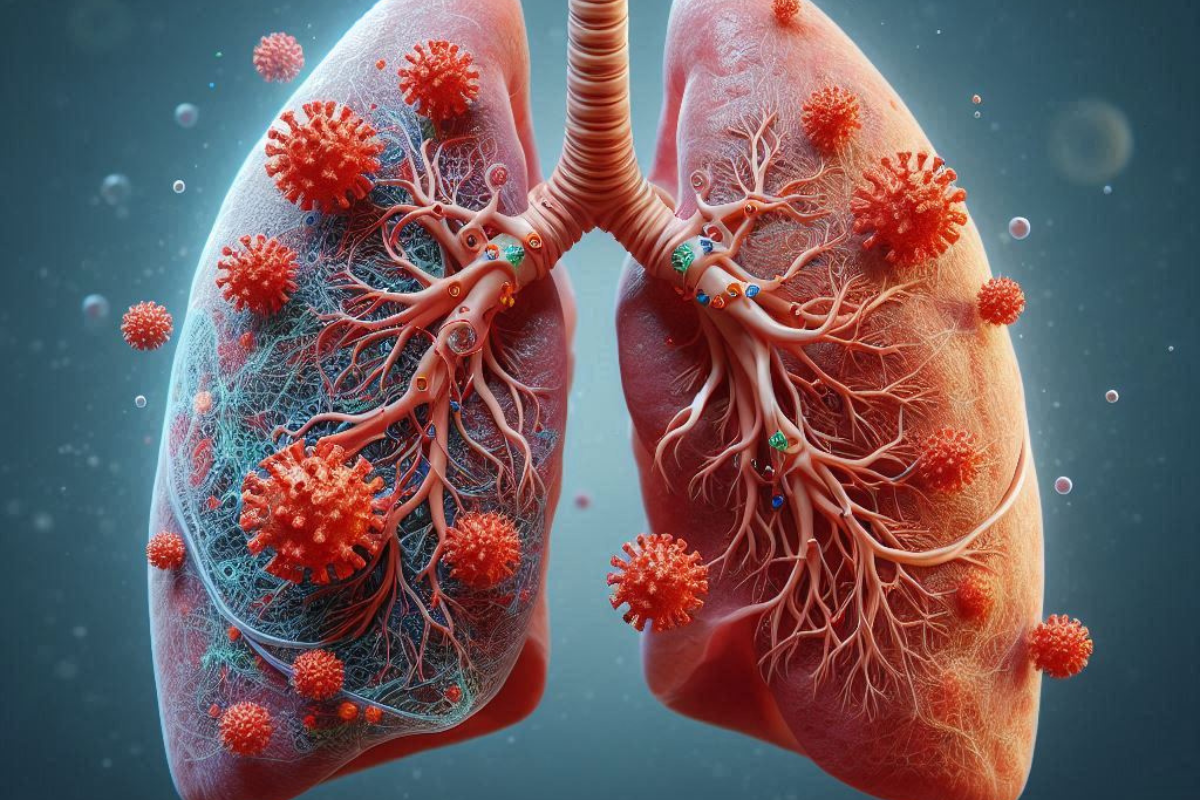Introduction:
The coronavirus, specifically SARS-CoV-2, has become a major global focus since the onset of the COVID-19 pandemic. Understanding the coronavirus is crucial for adopting effective prevention and treatment measures. This article provides a detailed overview of the coronavirus, its effects, the global response, and strategies to protect your health and that of your community.

What is the Coronavirus?
The coronavirus is a large family of viruses capable of causing illnesses in animals and humans. Among its members, SARS-CoV-2 stands out as the one responsible for the disease known as COVID-19. Notably, this virus is characterized by spikes on its surface, giving it a crown-like appearance (hence the name “coronavirus”).
Types of Coronaviruses
There are several types of coronaviruses, including:
- Human Coronaviruses: Four known types that cause common colds.
- SARS-CoV: The cause of Severe Acute Respiratory Syndrome (SARS), which emerged in 2002.
- MERS-CoV: The cause of Middle East Respiratory Syndrome (MERS), identified in 2012.
- SARS-CoV-2: The cause of COVID-19, first identified in Wuhan, China, in December 2019.
How Does the Coronavirus Spread?
The coronavirus primarily spreads through respiratory droplets expelled when an infected person coughs, sneezes, or talks. Additionally, other modes of transmission include:
- Direct Contact: Touching contaminated surfaces and then touching the face.
- Asymptomatic Transmission: Infected individuals who do not show symptoms can still spread the virus.
- Aerosols: In closed, poorly ventilated environments, small respiratory particles can remain in the air for extended periods.
Virus Life Cycle
After infection, the coronavirus enters host cells and begins to replicate. The virus’s life cycle includes:
- Cell Entry: The virus binds to ACE2 receptors on respiratory tract cells.
- Replication: The virus’s genetic material is introduced into the cell and starts replicating.
- Release and Spread: New viral particles are released from the infected cell to infect other cells and spread.
Coronavirus Symptoms
Symptoms can range from mild to severe and include:
- Common Symptoms: Fever, dry cough, fatigue, muscle aches, sore throat, and loss of smell or taste.
- Severe Symptoms: Difficulty breathing, chest pain, confusion, and cyanosis (bluish color in lips or face).
Complications and Associated Conditions
In some cases, the coronavirus can lead to serious complications, such as:
- Viral Pneumonia: Inflammation of the lungs that can result in severe breathing difficulties.
- Acute Respiratory Distress Syndrome (ARDS): A critical condition affecting lung function.
- Cardiovascular Issues: Inflammation of the heart and related complications.
Prevention and Control Measures
Prevention is essential to limit the spread of the coronavirus. Key measures include:
- Hand Hygiene: Wash hands with soap and water for at least 20 seconds, especially after touching surfaces or being in public places.
- Mask Use: Masks help reduce the spread of respiratory droplets.
- Social Distancing: Maintain a minimum distance of 1 meter from others and avoid large gatherings.
- Disinfection: Regularly clean touched surfaces with disinfectants.
COVID-19 Vaccination
Vaccination is one of the most effective tools against COVID-19. Available vaccines have been developed to:
- Reduce Disease Severity: Lower the risk of severe infections and hospitalizations.
- Prevent Transmission: Reduce the spread of the virus.
- Promote Herd Immunity: When a significant portion of the population is vaccinated, the spread of the virus is limited.
The Coronavirus Impact on Society
The pandemic has had a significant impact on various aspects of life:
- Healthcare System: Hospitals and healthcare professionals have faced unprecedented pressure.
- Economy: Many economies have been affected due to business closures and travel restrictions.
- Mental Health: Social isolation and health concerns have led to increased mental health issues.
Global Response and Research
The global response has included:
- Vaccine Development: Accelerated and coordinated efforts to address the pandemic.
- Treatments: Ongoing research to develop and improve treatments for COVID-19.
- Public Health Measures: Implementation of guidelines to control virus spread.
Conclusion:
The coronavirus has indeed presented significant challenges to global health and daily life. Consequently, understanding the virus and implementing effective prevention measures are crucial for safeguarding public health. Furthermore, vaccination and global cooperation are essential steps in overcoming the pandemic and progressing toward a safe and sustainable recovery.
FAQs:
1. What should I do if I suspect I have COVID-19?
Seek medical advice and get tested for COVID-19. Follow isolation and care guidelines until you receive results and further instructions.
2. Are COVID-19 vaccines safe and effective?
Indeed, COVID-19 vaccines have undergone extensive clinical trials and, as a result, have been shown to be both safe and effective in preventing severe disease and reducing virus transmission.
3. What are the main recommendations for preventing infection?
To effectively protect yourself, follow preventive measures such as frequently washing your hands, wearing masks in public, maintaining social distancing, and, additionally, getting vaccinated.
4. What should I do if I experience side effects after vaccination?
Most side effects are generally mild and temporary; however, if symptoms persist or become severe, it is important to consult a healthcare professional for further guidance.